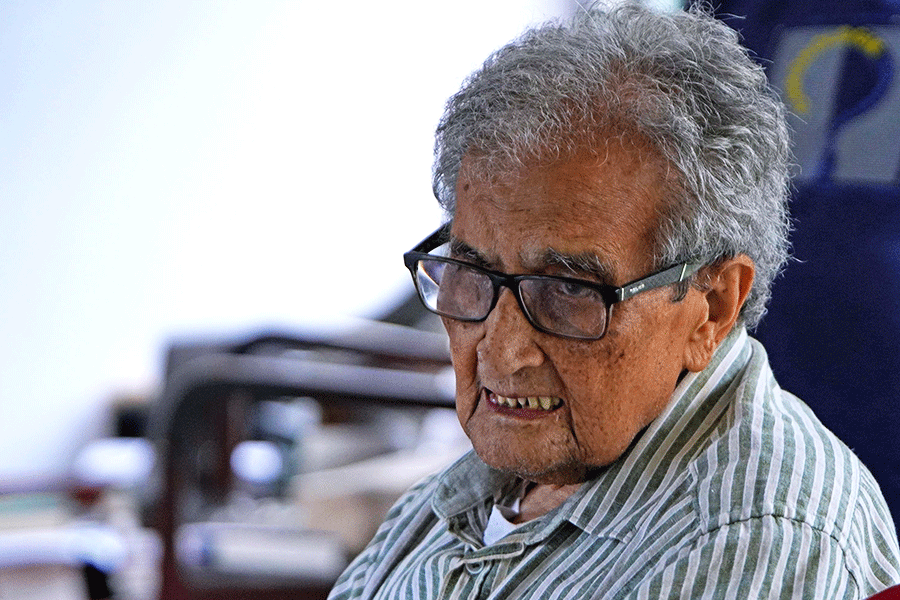Sixty years ago, India’s most loved actress was Suraiya. She entranced our fathers in the romantic roles she played opposite Dilip Kumar. It is not entirely certain whether she broke his heart when she left for Lahore in 1947, for he stayed on in India, married Saira Banoo, and went on to make films with Nargis. But Suraiya broke millions of Indian hearts when she left.
It would have been all right if she had won millions of Pakistani hearts. But there was no film industry in Pakistan at that time, and nowhere could Suraiya display her talents. She married and sank into the humdrum life of an ordinary housewife — sorry, a distinguished homemaker.
But then, in the Sixties, emerged another actress who stole Pakistani hearts — Noor Jehan. She was the luster of Lollywood. Many there were who longed for her, but there was one who succeeded — General Yahya Khan.
Those were the days when drinking was allowed in Pakistan. Every evening, the high and mighty of Pakistan would gather on the lawns of the clubs the British had left behind, and down one Scotch after another. As any respectable drinker will testify, such serial drinking has consequences. After one has downed a couple, one gets an irresistible urge — the urge to relieve oneself.
That is what General Yahya Khan was proceeding one evening to do when he encountered a woman sitting on a sofa on the way. They got to chat, and became good friends.
Her name was Akleen Akhtar. She was born in Gujarat (the city in Pakistan, not the state ruled by Narendra Modi). She was married off to a much older man, and bore him six children. Then finally she rebelled. Once, when they were on a holiday in Murree, she threw off her burqa and told him she had had enough — that she was going to live her own life.
Having been married off at an early age, she had not acquired any skills that might support an independent career. But she used to go frequently to clubs with her husband, and while they drank, she would find a chair close to the men’s toilet. That way she had come to know many rich and powerful men. She was also familiar with their basic needs, besides drink. When she was on her own, she took up the work of putting men in touch with women they would like to get to know.
So when Yahya Khan had a powerful urge to get to know Noor Jehan, he called Akleen and confided his longings in her. She went from Islamabad to Lahore, phoned Noor Jehan, and acquainted her with the lay of the land. Soon Yahya Khan and Noor Jehan were seen so often together that they became the pepper in the gossip mill of Pakistan. Akleen had Yahya Khan in her debt.
This and other favours made many powerful men indebted to Akleen; there was nothing she could not get done. Soon she came to be known as Rani General; she called Yahya Khan Agha Jani. She attracted not only men who had an insatiable urge for gratification, but also men who wanted something out of powerful men. Even Zulfiqar Ali Bhutto and Ghulam Mustapha Kar frequented her drawing room.
It looks as if she did not give Bhutto what he wanted. When he became prime minister, he put her under house arrest, and had her telephone disconnected. So after the Seventies, the influence of Rani General declined.
I do not know what happened to her numerous children, except one — Aroosa Alam. Aroosa did not show early promise. She married and had a son in 1976, Fakhr-e-Alam, who became more famous than her. At the age of 17, he launched a rap-bhangra-pop single entitled “Bhangra Pao”, and burst upon the musical firmament of Pakistan. Later he also starred in a Lollywood film, Very Good Duniya, Very Bad Loag, opposite Nirma (no, not our washing soap; she is a Lahory star). Nowadays he hosts a chat show entitled Bolain Kya Baat Hai.
Like her mother, Aroosa had a way with men; and having lived in Islamabad, she had come to know quite a few men of power. So in the Eighties she launched on a career: she would write up stories she had learnt from her friends in the government, mostly army generals, and splash them in newspapers. She started in The Muslim, and later on graduated to Pakistan Observer.
One of her most sensational stories related to Brigadier Andrew Durcan of Gordon Highlanders, nicknamed Tartan Barrel on account of his girth, who was military attaché in the British high commission in Islamabad till two years ago. She revealed, without naming any names, that he was intimate with a woman in the Institute of Strategic Studies, and that they had been meeting in Islamabad and England. She was not very explicit about who was spying on whom. But the director of the Institute issued vehement denials, which gave the story even more publicity, and the British government recalled Durcan for having had an improper relationship.
Soon after that, the earthquake struck in October, 2005. Islamabad is a low-rise city built in the past forty years, so it was not damaged. But it had one high-rise building, Margala Tower. It collapsed, and with it went a flat Aroosa had bought there. Luckily, she was not living there, so she survived.
Captain Amarinder Singh, then chief minister of Punjab, went to Pakistan in January, 2004. Chaudhury Pervez Ilahi, his counterpart in Pakistani Punjab, presented him with Sultan, a white Arabian stallion. Someone in Delhi apparently did not like Amarinder Singh. When he crossed the border in Wagah, Sultan was placed in quarantine in an arid little field, and kept there for 14 months till he went lame. When he went again to Pakistan next year, Amarinder Singh was given a chestnut half-Arabian stallion called Son of a Gun. I have not been able to ascertain its fate.
On that trip, Amarinder Singh went to Gurdwara Panja Sahib in Hasan Abdal; his father, Maharaja Yudhvir Singh of Patiala, had gone there in 1932 and offered kar sewa at the Gurdwara’s lake. On the way, Amarinder Singh went to Islamabad, where he was entertained by Aroosa as chairperson of the local journalists’ association. She visited Patiala later in the year and was given some kind of a cup by Amarinder Singh at a reception in Patiala Club. Aroosa has a multiple-entry visa for India, thanks to her friends in the external affairs ministry, and makes frequent use of it.
Early in March, Daily Jinha, a newspaper in Pakistani Punjab, reported that Amarinder Singh and Aroosa Alam had got married. It was also rumoured that he had bought her a house in Islamabad for 70 million rupees (that is only Rs 5.3 million in Indian currency). Such gossip about Amarinder Singh is not uncommon; stories were also afloat that he had married one Manpreet Sekhon. Both Amarinder Singh and Aroosa have denied the story, so probably there is nothing in it. But as will be clear from my revelations, the situation could bear watching.










